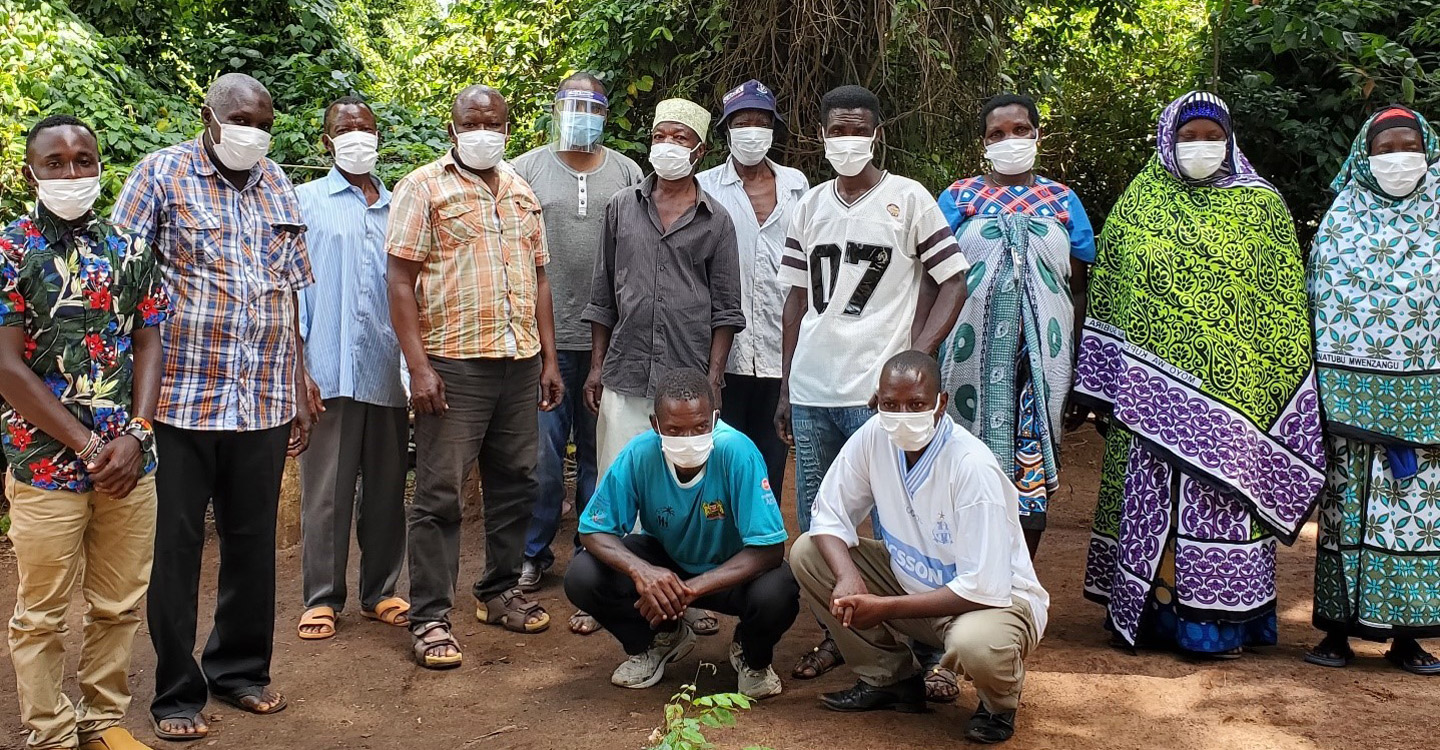Farmers’ organizations responding quickly in times of crisis
IFAD Asset Request Portlet
Asset Publisher
Farmers’ organizations responding quickly in times of crisis
Estimated reading time: 3 minutes
Ever since COVID-19 first struck, first responders all over the world have stepped up to keep the essential sectors of our society functioning. While many busied themselves with securing global health and safety, others leapt into action to keep the world’s food production chains moving.
For many African countries, farmers’ organizations have played both roles.
In early 2020, as virtually the entire world tumbled into an unprecedented crisis, African farmers’ organizations reacted quickly. They recognized that COVID-19 was about to severely curtail all sectors of the global economy, including agriculture. Right away, they began engaging with governments all over the continent, advocating for their members and for the continuity of agricultural production despite the restrictions. They also worked at the grass-roots level to support the farmers themselves, including offering guidance on how to stay safe from the virus.
“They really turned to us as a trusted source of information, even though health issues are not at the core of our work,” says Norbert Tuyishime, Programme Officer at the Eastern African Farmers’ Federation (EAFF).
To support the excellent work done by these organizations, IFAD and its collaborative partners established the SAFE 2020 programme, a coordinated rapid-response effort designed by and for African farmers’ organizations. Implemented in over 22 countries to date, SAFE 2020 works to mitigate the threats and impacts of the COVID-19 crisis on small-scale farmers and local food systems. It is implemented by the five regional farmers’ organizations and their national members, the Pan-African Farmers Organization and AgriCord, and it receives financing from the RPSF (IFAD’s COVID-19 relief fund) and FO4ACP, the agency’s largest programme that directly supports farmers’ organizations.
SAFE 2020’s support falls into two main categories. One concerns its support activities for vulnerable small-scale producers and their organizations: local and national efforts to supply liquidity and other inputs, keep markets open and functioning, and ensure continued food security. At the same time, it also established an international communication platform to disseminate accurate, up-to-date information and coordinate efficient and focused action.
For EAFF, SAFE 2020’s support was just the extra push they needed.
EAFF was already engaged in dialogues with national governments, advocating for emergency measures like subsidies and tax reductions that would help their members weather the worst of the lockdowns. But with funding from SAFE 2020, EAFF was able to offer rapid relief to help their farmers keep working.
EAFF began by distributing inputs, such as seeds, fertilizers and animal feed. They were also able to offer online e-extension services that both helped their farmers stay safe from COVID-19 and guided them through the continuously changing safety measures, allowing them to continue working.
Meanwhile, in Madagascar, FIFATA focused on enabling its relay farmers to continue their work despite travel restrictions and other anti-COVID measures. Relay farmers are indispensable for the adoption of good agricultural practices. They travel from town to town, teaching others valuable skills such as how to vaccinate animals and how best to use agroecological inputs, such as locally-adapted seeds and biofertilizers.
FIFATA, with support from the agricultural agency Fert, supplied its relay farmers with smartphones and bicycles. The phones allowed them to organize joint transportation opportunities to transport goods to markets and connect producers with buyers. They were also able to access information on the rapidly changing safety measures and share them with the farmers they met. And with roads closed to most traffic, the bicycles were the perfect solution to keep the relay farmers moving within and between villages.
In the Republic of the Congo, the restrictive measures put in place by the government to fight COVID-19 quickly led to soaring prices for transportation and common goods, including agricultural inputs. Many farmers saw their working capital quickly erode. Such was the case for Helene Mvemba, a farmer from Tchamba Nzansi.
“With no more means to work, I stopped going to my farm entirely,” she says, “and that impacted my entire family.”
But, thanks to SAFE 2020, she received just the right amount of support she needed to get back to work.
Even as many places around the world celebrate progress against COVID-19, SAFE 2020 is still hard at work. The programme aims to reach over 300,000 family farms by the end of 2021. In the future, farmers’ organizations plan to build on the lessons learned on emergency responses under SAFE 2020 to be better prepared to achieve their long-term goal of increasing farmers’ resilience against external shocks, including climate change and natural disasters.
Publication date: 12 October 2021